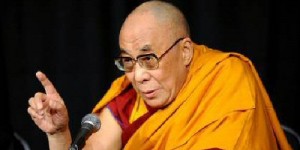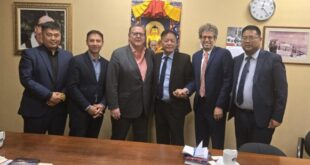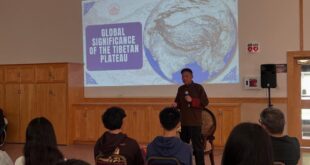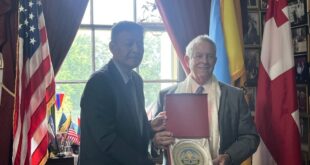Dharamsala, HP, India, 1 July 2011 (By Ravi Nessman, Associated Press) – The Dalai Lama said Friday that China’s Communist leadership can play no role in deciding who succeeds him as the leader of Tibetan Buddhism upon his death and called Beijing’s meddling in the issue “a disgrace.”

The Nobel Peace laureate turns 76 next week and has begun preparing his people for his eventual death in hopes of preventing his homeland’s Chinese rulers from taking advantage of the leadership vacuum.
The Dalai Lama, whose predecessors ruled Tibet as god-kings for four centuries, gave up his role as Tibet’s political leader in favor of an elected exile government in May.
He has said the next Dalai Lama – who would be the 15th incarnation of the spiritual leader – will be born in exile and even floated the idea of choosing his own successor while still alive.
Beijing, which hopes the Tibetan national movement will fizzle with his death, has responded by insisting the Dalai Lama will be reincarnated in Chinese-controlled Tibet and accusing the current Dalai Lama of violating religious tradition.
“One thing I want to make clear, as far as my own rebirth is concerned, the final authority is myself and no one else, and obviously not China’s Communists,” he told The Associated Press in an interview.
“This is a religious matter,” he said, pointing out that China’s atheist Communists don’t believe in reincarnation, so can’t decide a matter based in that belief.
“It’s a disgrace to see that they want to control that,” he said. “They’ve become mad by political power.”
China claims Tibet has been its territory for centuries, although many Tibetans say it was effectively independent for most of that time. The Dalai Lama fled into exile amid an abortive uprising against Chinese rule in 1959, nine years after Communist forces entered the Himalayan region.
On Friday, he rejected the suggestion that now that he is retired from politics he might be willing to discuss with China his return to Tibet without linking it to other conditions about Tibetan autonomy or China’s treatment of Tibetans.
“No,” he said. “The Tibetan issue is not just my return.”
He said his concern was for the basic rights of the 6 million Tibetans and their culture.
“As soon as China’s government is showing their courage to face the reality, then I am ready to go there to help them to promote genuine reconciliation,” he said.
The Communist-led Chinese government has held nine rounds of talks with the Dalai Lama and his representatives over the years, with no headway.
Beijing says the Dalai Lama is welcome to come back if he drops his separatist activities, accepts Tibet as an inalienable part of China and recognizes Taiwan as a province of China.
The Dalai Lama has repeatedly denied seeking Tibet’s independence from China.




